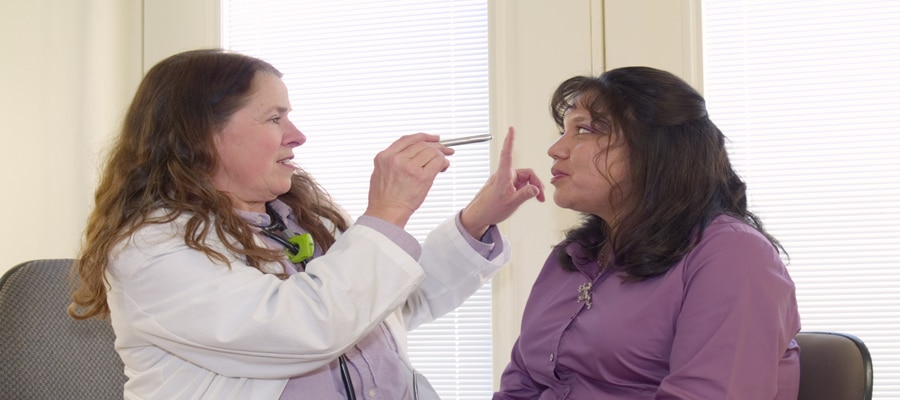PMHNP Clinical Pearls: Timeless Insights for Everyday Psychiatric Practice

Clinical pearls are concise, evidence-informed insights that stem from clinical experience, research, and real-world patient care. For Psychiatric Mental Health Nurse Practitioners (PMHNPs), they serve as practical guideposts when navigating complex mental health conditions. Unlike textbooks, which offer theoretical frameworks, clinical pearls deliver actionable, nuanced advice that applies directly to daily practice. These insights help bridge the gap between knowledge and execution, especially in time-sensitive or uncertain situations. PMHNPs use them to improve diagnostic accuracy, personalize treatment plans, and build stronger therapeutic alliances. Whether managing medication side effects, addressing comorbidities, or supporting adherence, clinical pearls offer tangible value. They sharpen clinical judgment, reduce trial-and-error, and often lead to better patient engagement. In an evolving field like psychiatry, where each patient presents uniquely, these pearls foster flexibility and confidence. They also enhance interdisciplinary communication, making PMHNPs effective collaborators in integrated care settings. Moreover, clinical pearls embody the blend of science and empathy that defines psychiatric nursing. They remind providers to treat the person, not just the disorder. For new and experienced PMHNPs alike, clinical pearls contribute to lifelong learning and continuous improvement. They can come from mentors, case reviews, research updates, or reflective practice. Ultimately, clinical pearls elevate care delivery by offering real-world wisdom grounded in both compassion and evidence.
Pearl #1: Don’t Just Diagnose—Understand the Narrative
A patient’s story often holds more diagnostic value than a standardized checklist of symptoms. Psychiatric Mental Health Nurse Practitioners (PMHNPs) should make it a priority to understand the full context behind behaviors, rather than quickly categorizing them based on surface-level symptoms. For instance, a patient presenting with chronic irritability might not necessarily have bipolar disorder—it could be a reaction to unaddressed trauma or ongoing social stressors. Cultural beliefs, financial hardships, family dynamics, and even prior psychiatric treatment experiences all influence how symptoms are expressed and how patients engage with care. By adopting a narrative-based approach, PMHNPs develop a deeper, more compassionate understanding of their patients. This not only improves diagnostic accuracy but also fosters therapeutic trust and long-term engagement. Listening to a patient’s lived experience encourages ethical, individualized treatment that aligns with both clinical evidence and human dignity. As psychiatric care continues to move toward integrative and person-centered models, the ability to “hear the story behind the symptoms” becomes a powerful clinical pearl—guiding practitioners toward more meaningful, impactful interventions.

Pearl #2: Treat the Side Effects Like the Disorder
A common reason why patients abandon psychiatric medications is the presence of unmanaged side effects, which can lead to frustration and disengagement with treatment. For Psychiatric Mental Health Nurse Practitioners (PMHNPs), proactively addressing and managing these side effects is crucial for maintaining treatment adherence and ensuring long-term success. Take, for example, weight gain commonly associated with antipsychotic medications—this side effect can be a significant barrier for patients, particularly when they feel it impacts their self-esteem or overall health. In these cases, introducing dietary counseling or engaging a nutritionist early on can be an invaluable part of the treatment plan, helping patients feel supported and in control of their health. Similarly, sexual dysfunction, often linked to Selective Serotonin Reuptake Inhibitors (SSRIs), can lead to discontinuation of therapy. Addressing this concern early by offering medication adjustments or adjunct therapies, such as adding a second medication or switching to a different class of drugs, can help reduce this barrier. Patients truly appreciate when their PMHNP takes a proactive approach in anticipating and addressing their concerns. Offering empathy, clear education about potential side effects, and collaborating on feasible solutions not only improves patient satisfaction but also strengthens their commitment to treatment. Effectively managing side effects is not simply about making patients comfortable—it’s a cornerstone of maintaining therapeutic alliances and ensuring the overall success of psychiatric treatment. Never underestimate the power of understanding and pharmacologic skill in keeping patients engaged with their mental health care.
Pearl #3: Know the Kinetics—Timing Matters
Psychotropic medications are powerful tools in managing psychiatric disorders, but they require precise titration to ensure effectiveness and minimize risks. The timing of medication administration can significantly impact treatment outcomes, making it a critical aspect of the prescribing process. For example, with lithium, levels must be monitored closely, especially during changes in hydration, as dehydration can lead to dangerous toxicity, while overhydration can dilute the drug's effectiveness. Similarly, the timing of stimulant medications is crucial; administering them in the morning ensures that their effects peak during the day when they are most needed, while avoiding late afternoon doses that can disrupt sleep. PMHNPs must possess a deep understanding of pharmacokinetics, including absorption rates, half-lives, and peak concentrations, to avoid both subtherapeutic effects and toxicity. This knowledge allows for more precise dosing and adjustments, ensuring that patients receive the most effective treatment with the least risk of adverse effects. By monitoring these parameters, PMHNPs can prevent common pitfalls like underdosing or overdosing, which can lead to poor outcomes or dangerous side effects.
In addition to their technical knowledge, PMHNPs should take the time to explain the timing and rationale behind medication regimens to their patients. This helps patients understand the importance of following the prescribed schedule and improves their compliance, which can have a significant impact on treatment success. Educating patients on how their medications work in their bodies empowers them to become active participants in their treatment, fostering a stronger therapeutic alliance. In integrated care settings, precise timing of psychotropic medications becomes even more important, as it enhances collaboration between primary care providers and psychiatric specialists. By ensuring that all providers are aware of medication schedules, they can work together to optimize the patient's overall care plan, avoiding potential drug interactions and improving outcomes. When timing is handled with care and precision, a poorly controlled case can be transformed into a success story, with both the patient and the healthcare team seeing significant progress.
Pearl #4: Never Ignore Medical Mimics
Psychiatric symptoms can often be misleading, presenting as mental health disorders when they may actually be rooted in underlying medical conditions. For example, hypothyroidism can manifest as depression, and urinary tract infections (UTIs) in older adults can mimic psychosis. In such cases, it is essential for Psychiatric Mental Health Nurse Practitioners (PMHNPs) to maintain a high degree of vigilance and collaborate closely with medical providers to rule out organic causes before settling on a psychiatric diagnosis. This proactive approach helps avoid misdiagnosis, which can lead to ineffective treatments and unnecessary delays in addressing the actual health issue. The importance of this clinical pearl is amplified in integrated care settings, where PMHNPs have immediate access to lab results, imaging studies, and medical records. Such access allows for more thorough patient evaluations and timely interventions. For instance, lab tests can confirm the presence of thyroid dysfunction, blood sugar abnormalities, or infections, which may be contributing to the patient's psychiatric symptoms. By leveraging these resources, PMHNPs can provide comprehensive, holistic care that addresses both mental health and physical well-being.
A strong foundation in medical screening is a key component of ensuring patient safety and avoiding potential harm from inappropriate medication use. For example, prescribing antidepressants without first considering the possibility of a thyroid issue can lead to unnecessary pharmacological interventions and missed opportunities for proper treatment. Additionally, recognizing when psychiatric symptoms might be indicative of an untreated medical condition prevents harmful misdiagnosis and enhances the effectiveness of interventions. Patients have greater trust in clinicians who approach care with a dual-awareness of both mental and physical health. When PMHNPs demonstrate this comprehensive perspective, they not only ensure more accurate diagnoses but also foster stronger therapeutic alliances with patients. This holistic approach, which combines psychiatric expertise with medical knowledge, distinguishes PMHNPs as well-rounded, informed providers who prioritize the health of the whole person, not just the mind.
Pearl #5: Match Therapy Style to Personality Type
Therapeutic success often hinges on how well the treatment approach aligns with the patient's individual personality and needs. Not every patient responds to the same modality in the same way, and recognizing this can be a game-changer in fostering better outcomes. For instance, a patient who thrives on structure and logic might excel with Cognitive Behavioral Therapy (CBT), which is highly structured and focuses on identifying and altering negative thought patterns. However, a patient with a history of trauma may find greater benefit in a slower, more relational approach, such as psychodynamic therapy or Eye Movement Desensitization and Reprocessing (EMDR). These approaches prioritize exploring deep-seated emotional experiences and processing traumatic memories in a supportive, gradual manner. As a Psychiatric Mental Health Nurse Practitioner (PMHNP), even if you're not directly providing therapy, your role in the referral process is crucial. Referring patients to therapy that is aligned with their personality and therapeutic needs can significantly improve their engagement and success in treatment. For example, understanding a patient's communication style, their comfort level with vulnerability, and their readiness for change can guide you in making the right referral. Some patients may feel more comfortable in group settings, while others may prefer one-on-one sessions where they feel more at ease to open up.

Matching patients with the right therapeutic modality is not only about the clinical approach but also about creating an environment in which the patient feels heard and understood. When the therapy aligns with a patient’s needs, it fosters trust between the patient and the provider, which is essential for the therapeutic alliance. Moreover, this personalized approach significantly reduces dropout rates in therapy, as patients are more likely to stay engaged when they feel the treatment resonates with them.
In addition, the process of matching patients to therapy based on their specific needs also emphasizes the importance of collaboration within the healthcare team. By sharing insights into a patient’s psychological and emotional landscape with therapists, PMHNPs can ensure that treatment plans are comprehensive and tailored. This holistic approach improves the likelihood of successful therapy and overall patient well-being, ultimately empowering the patient to take ownership of their mental health journey.
Pearl #6: Medication Is Not Always the First Line
While medications are powerful tools in treating psychiatric conditions, not every case requires pharmacologic intervention from the start. Conditions like mild anxiety, situational depression, or grief may respond better to non-pharmacological approaches, such as therapy, lifestyle modifications, or psychoeducation. For PMHNPs, it's crucial to use clinical judgment to assess the severity of the condition and carefully weigh the pros and cons of initiating medication early. Not all patients require immediate pharmacologic treatment, and in some cases, a more conservative approach may be more beneficial. Educating patients on the full spectrum of available treatment options fosters shared decision-making and empowers them to take an active role in their care. When patients understand that medications are not always the first-line treatment, they feel more involved in the process and less pressured to begin medication right away. By starting with less invasive options, PMHNPs can build trust with their patients and allow for natural recovery when appropriate. This approach also supports a more holistic and personalized treatment plan, where the focus is on the patient’s overall well-being rather than just symptom management. Opting for a conservative treatment approach, when appropriate, not only demonstrates thoughtful care but also reinforces the PMHNP's credibility and positions them as an ethical and patient-centered provider. It shows that the PMHNP is committed to considering all factors—biological, psychological, and social—before jumping to pharmacological solutions, and it builds long-term trust with patients who feel heard and respected.
Pearl #7: Trust the Gut—Yours and Theirs
PMHNPs frequently encounter situations where the available data is insufficient, yet their clinical intuition can guide them toward important insights. If something feels “off” about a patient's presentation—whether it's their behavior, demeanor, or inconsistencies in their reported symptoms—it often signals that something is not right, even if there’s no immediate evidence to confirm it. This instinctive awareness should not be ignored. Similarly, patients often voice discomfort with medications before the typical side effects appear, such as subtle signs of mood changes or physical discomfort. These early expressions of unease, when coupled with the PMHNP’s intuition, can uncover emerging issues, allowing for timely interventions. Listening to both your own intuition and the feedback from your patients can lead to better care outcomes, as it creates an open channel for uncovering underlying concerns that may not be immediately visible through clinical data. Over time, seasoned PMHNPs develop what might be called a clinical "sixth sense"—a deep, intuitive understanding that complements the empirical data they rely on. This ability to sense when something is amiss or when a patient is silently struggling is honed through experience and thoughtful reflection on past cases.
Honoring your instincts as part of the clinical process makes you a more attuned and responsive practitioner. It fosters better patient relationships, builds trust, and can even prevent harm by identifying issues before they escalate. The best PMHNPs recognize that clinical expertise is not only about following protocols but also about listening to those subtle cues that guide patient care in a way that’s compassionate and proactive.

Pearl #8: Communication is a Therapeutic Tool
How PMHNPs communicate with patients can have as much impact on treatment outcomes as the medications they prescribe. The language used in every interaction shapes the therapeutic relationship and can significantly influence a patient's experience of care. Open-ended questions, validating language, and motivational interviewing techniques are powerful tools that PMHNPs can use to engage patients in a more meaningful way. These techniques allow for a deeper understanding of the patient’s concerns and provide a platform for building a strong, trusting relationship. Every conversation with a patient presents an opportunity to decrease stigma and enhance the sense of partnership in the therapeutic process. Simple yet supportive phrases, such as “You’re not alone in this” or “I believe you can get better,” can have a profound effect on a patient’s mindset, helping them feel heard, understood, and empowered. These words help to shift the patient’s perspective from one of isolation to one of hope and possibility. Intentional communication fosters patient adherence, reduces anxiety, and cultivates a collaborative atmosphere that enhances the effectiveness of treatment. Over time, this style of communication can transform the clinical encounter from a transactional meeting into a true healing space, where patients feel supported and actively engaged in their recovery. For PMHNPs, the ability to connect with patients through meaningful dialogue is an essential part of holistic care, where psychological support and medical treatment work together seamlessly.
Pearl #9: Integrated Care is a Game Changer
PMHNPs in integrated care settings have the unique advantage of accessing medical labs, interdisciplinary consults, and holistic care coordination, all of which significantly enhance their ability to provide comprehensive care. This integrated approach not only leads to improved patient outcomes but also boosts professional satisfaction, as it allows PMHNPs to work in a more collaborative and dynamic environment. By embedding mental health care into general healthcare, patients benefit from a more comprehensive and seamless treatment plan, reducing the likelihood that critical issues will be overlooked or neglected. For example, a PMHNP in an integrated setting can advocate for necessary screenings like thyroid tests, review cardiology notes to ensure that there are no medication interactions, or adjust psychotropic medications based on recent lab trends—all in real time. This immediate access to medical data and the ability to consult with other healthcare professionals enhances the PMHNP’s ability to make informed decisions that are in the best interest of the patient. Additionally, this level of collaboration reinforces the critical role PMHNPs play in modern healthcare systems, highlighting their ability to offer both psychiatric expertise and valuable contributions to overall patient care. This model ensures a more efficient, patient-centered approach that benefits both the provider and the patient.

Pearl #10: Burnout is Real—Take Care of Yourself
Psychiatric Mental Health Nurse Practitioners (PMHNPs) often carry emotional loads that are not immediately visible, including vicarious trauma, long work hours, and the clinical complexity of mental health care. These challenges can contribute to burnout if not properly managed. Self-care is not a luxury, but an essential practice for maintaining long-term sustainability in the field. Engaging in peer consultation, developing mindfulness routines, and setting boundaries around work hours are key strategies for protecting both personal well-being and patient safety. As a PMHNP, it’s important to remember that if you are not well, you cannot provide the highest level of care to your patients. By modeling self-care, you also teach patients the importance of maintaining their own mental health. A resilient provider not only inspires hope but reinforces the idea that recovery is possible and worth pursuing. Taking care of yourself ultimately benefits both you and those you serve.
Conclusion
These clinical pearls offer practical wisdom that can elevate psychiatric care from routine to remarkable. For Psychiatric Mental Health Nurse Practitioners (PMHNPs), combining textbook knowledge with experiential insight is the key to building clinical mastery and delivering exceptional care. These pearls go beyond the basics of symptom management; they deepen understanding of patients as individuals, fostering more holistic and personalized treatment approaches. By integrating clinical knowledge with insights gained through patient interactions, PMHNPs are better equipped to navigate complex cases and provide care that truly resonates with the patient’s needs and lived experiences. The impact of these pearls extends far beyond improving clinical outcomes—they also nurture deeper patient trust and foster professional fulfillment. Patients appreciate providers who not only possess technical expertise but also demonstrate empathy, understanding, and a genuine interest in their well-being. Clinical pearls remind us that being a great provider is not just about knowing what to prescribe or which therapeutic approach to use—it’s about truly understanding who you are treating, how to connect with them on a human level, and when to slow down, listen, and adapt the care plan. This approach helps to build stronger therapeutic alliances and enhances patient engagement in their own treatment journey.
As PMHNPs, continuous learning, self-reflection, and collaboration are essential to honing our skills and maintaining effectiveness in clinical practice. The art of psychiatric nursing is found in the nuanced, compassionate touches that make each interaction meaningful. By embracing these clinical pearls, PMHNPs can ensure they provide care that is not only evidence-based but also deeply compassionate and tailored to the unique needs of each patient. These small yet powerful insights serve as the foundation for impactful, patient-centered psychiatric care.
FAQs
- What are PMHNP clinical pearls?
Clinical pearls are experience-based, actionable insights that help PMHNPs navigate complex psychiatric care more effectively. - How can clinical pearls improve patient outcomes?
They guide real-time decisions, reduce side effects, enhance adherence, and foster therapeutic relationships—improving both safety and satisfaction. - Are clinical pearls part of evidence-based practice?
Yes, while rooted in clinical experience, they align with evidence-based principles and enrich them with practical application. - Where can PMHNPs learn more clinical pearls?
Mentorship, peer groups, continuing education, and real-world experience are the best sources for discovering and refining clinical pearls.


